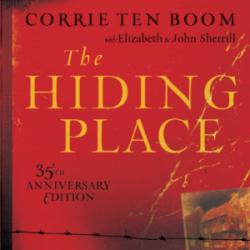So it’s 2022 and this here blog started out 20 years ago in 2002. In celebration of all those twos and zeroes — and as a way of ensuring more frequent threads — we’ll be posting On This Day flashbacks throughout the year.
This is from January 5, 2016, “Stonehenge, Yucca Mountain, and the Bible“:
But there’s a more immediately relevant point in Jenkins’ ramble, too. He hints at it there in his reference to the biblical story of Ai — a story, he notes, that seems to have been “invented accordingly” to account for a heap of ruins.
That story was written down some 2,400 years ago, more or less. So already, with that written story, we’re dealing with a text written by people who lived in an almost incomprehensibly different world from our own. But that text purports to tell a much older story still, one that took place hundreds of years earlier and one that claims to have endured through all those centuries without any formal record or written account. As Jenkins says of Stonehenge, “the timescale is daunting.” For the Book of Joshua no less than for that ancient monument, “Claims that accurate tradition can survive more than a century or two without written continuity need to be examined very carefully.”
Jenkins is writing on Patheos’ evangelical channel, so he’s tip-toeing a bit here. But he’s not suggesting anything that would seem strange to any biblical scholar — not even to most evangelical biblical scholars. The “histories” of the Hebrew scriptures were written centuries after the events they describe, and, generally speaking, we regard the historical reliability of many of them as somewhere around that of Geoffrey of Monmouth.
We do not have any tangible history of the city of Ai, and the story we have in Joshua shouldn’t be thought of as giving us such a history. But what we do have is that story. That story was written down and preserved as a story, eventually entering the canon of the Hebrew scriptures and, much later, of the Christian Bible. Is that story “history”? No, but that story is scripture. It should be read as what it is and not as what it’s not. It’s always a good idea to read things that way.
Suggested musical accompaniment: “10,000-Year Earworm to Discourage Resettlement Near Nuclear Waste Repositories (Don’t Change Color, Kitty).”
















